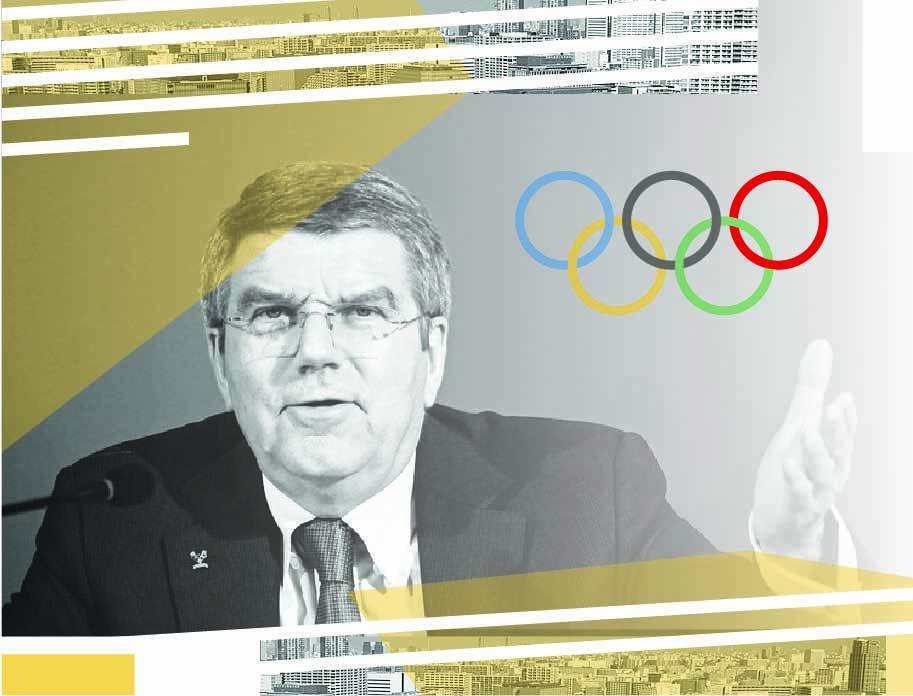
Prof Thomas Horky
Professor at Macromedia University of applied sciences in Hamburg/Germany. He worked as a journalist and at the University of Hamburg and German Sports University in Cologne. Horky published several international contributions. In 2018, he was visiting professor at Indiana University in Bloomington/IN.
t.horky@macromedia.de
www.macromedia.de
Twitter: @thomashorky

Section 2: Media Coverage & Representation
- Twitter conversations on Indian female athletes in Tokyo
- ”Unity in Diversity” – The varying media representations of female Olympic athletes
- The Olympic Channel: insights on its distinctive role in Tokyo 2020
- How do we truly interpret the Tokyo Olympic ratings?
- Between sexualization and de-sexualization: the representation of female athletes in Tokyo 2020
- Reshaping the Olympics media coverage through innovation
- An Olympic utopia: separating politics and sport. Primary notes after analyzing the opening ceremony media coverage of mainstream Spanish sport newspapers
- What place is this? Tokyo’s made-for-television Olympics
- The paradox of the parade of nations: A South Korean network’s coverage of the opening ceremony at the 2020 Tokyo Olympics
- Tokyo 2021: the TV Olympics
- Why we need to see the “ugly” in women’s sports
- “The gender-equal games” vs “The IOC is failing black women”: narratives of progress and failure of the 2020 Tokyo Olympics
- Ghana: Poor local organizing, and absence of football team dampens interest
- Megan Rapinoe: The scary Bear for many Americans?
- ‘A Games like no other’: The demise of FTA live Olympic sport?
- Temporality of emotionalizing athletes
- Fandom and digital media during the Tokyo 2020 Olympic Games: A Brazilian perspective using @TimeBrasil Twitter data
- Media wins medal for coverage of athletes as people, instead of entertainers
- Media frames and the ‘humanity’ of athletes
- Reporting at a distance. Stricter working conditions and demands on sports journalists during the Olympics
- Simone Biles, journalistic authority, and the ideology of sports news
- Representations of gender in the live broadcast of the Tokyo Olympics
- Americans on ideological left more engaged in Summer Olympics
- Nigeria: Olympic Games a mystery for rural dwellers in Lagos
- National hierarchy in Israeli Olympic discourses
- Equestrian sports in media through hundred Olympic years. A roundtrip from focus to shade and back again?
- Reshaping the superhuman to the super ordinary: The Tokyo Paralympics in Australian broadcasting media
- Is the Paralympic Games a second-class event?
- The fleeting nature of an Olympic meme: Virality and IOC TV rights
- Tokyo 2020: A look through the screen of Brazilian television
- Is the Paralympic Games a second-class event?
- How digital content creators are shaping meanings about world class para-athletes
- How digital content creators are shaping meanings about world class para-athletes
- The male and female sports journalists divide on the Twittersphere during Tokyo 2020
- Super heroes among us: A brief discussion of using the superhero genre to promote Paralympic Games and athletes
- “Everything seemed very complicated”: Journalist experiences of covering the Tokyo 2020 Paralympic Games
- Representing high performance: Brazilian sports journalists and mass communication professionals discuss their philosophies on producing progressive Paralympic coverage
- Representations of gender in media coverage of the Tokyo 2020 Paralympic Games
One of the most remarkable moments of the 2020 Tokyo Olympics occured very early in the first week inside the Ariake Urban Sports Park. Maybe it was not the most important moment, but a moment symbolizing an upcoming future of the games nonetheless. With just 42 years, the medal podium of women’s skateboarding competition was the youngest group of medalists ever in Olympic history. Thirteen year-old Japanese Momiji Nishiya as the first gold medalist in skateboarding, followed by Rayssa Leal from Brazil with the same age and the second Japanese athlete Funa Nakayama, being the oldest medalist with 16 years of age.
This scenery showcases challenges and solutions for the future of the Olympics and for the sport itself in one Olympic moment. Skateboarding as one of five new sports in Tokyo presents the inclusion of the next action sport into the Olympic program. The mega-event has been searching intensively for a younger audience for several decades to generate new ways of attention and sponsorship to freshen up the look and feel of a competition getting older every four years. The question arises, what does this Olympic blood replacement do with action sports?
Olympic mediatization
Thorpe and Wheaton (2011) used a post-subcultural studies approach defining the intersections and problems between the lifestyle or sports and corporations like the IOC or media conglomerates with the inclusion of windsurfing into the Olympics in 1984, snowboarding in 1998, and bicycle motocross (BMX) in Beijing in 2008. Thorpe and Wheaton concluded, “in particular, the reactions to and effects of, the inclusion of each action sport into the Olympic model are influenced by the cultural status and economic power of the action sport culture and industry during the incorporation process“ (p. 13).
With skateboarding, surfing, climbing, karate and soft-/baseball, five new sports for 2020 Tokyo were announced by the IOC on August 3, 2016 (olympics.com, 2016). In a five-year process, these sports became part of the Olympic program, adapting IOC’s rules and regulations, attracting new sponsorships and athletes, turning into the media focus and getting attention and professionalization on different levels. This process can be defined as a mediatization of sport (Frandsen, 2020). In a research project in May and June, we conducted several in-depth interviews with athletes, coaches, and media persons of these action sports in Germany. In this contribution, I will present some results for skateboarding.
Skateboarding entering the Olympic program
The idea of skateboarding as riding on asphalt waves was invented in the 1950s. Schwier and Kilberth (2018) described skateboarding as an extraordinary way for (sporting) life and an element of lifestyle for individuals. Looking to the Tokyo Olympics, the skateboarding scene was divided with one part hoping for higher recognition and more memberships, bigger financial resources and attention by mass media, and another part fearing the impact of the Olympic mega-event, professionalization, and a form of disempowerment for athletes. While the influence of contests like the X games has already changed the sport, skateboarding seems much more important for the Olympics than the Olympics for skateboarding.
“We skaters will profit from new sponsors through the Olympics,“ the former German and European champion Alex Mizurov stated in an interview. “By being included in the Olympics, we hope for money, support and recognition of different areas.“ The 33 year-old professional athlete is looking into a bright future: “Skateboarding will adjust to media and grow on different levels. By 2030, the membership will double worldwide. For this new Olympic generation, the sport will be bigger and more organized with the addition of new skater parcs and professional federations.“ In opposition, the member of a German regional skateboard federation, Daniel Schindler, mentioned: “Skateboarding will never be highlighted by mass media, even if it becomes an Olympic sport. We skaters wanted a new organizational structure, and the games turned skateboarding into a commercial event.“ The interviews presented distinguish developments of the mediatization of skateboarding on a societal, institutional, and structural level (Horky, 2009). The sport seems to be losing its lifestyle attitude, while transforming into a regulated professional sport. A deeper analysis will be prepared.
Digital conclusion
“Skateboarding is more than a sport, it’s art,“ US-skater Jagger Eaton stated, going live on Instagram seconds after winning the bronze medal in Tokyo. One Olympic goal has already been reached: “These Games are expected to be the most digitally engaged Games ever,” said Christopher Carroll, Director of Digital Engagement and Marketing for the IOC. Fans at home were particularly interested by the new action sports added to the Olympic program in Tokyo. The top tweet within the first week was about Rayssa Leal, the 13-year-old Brazilian silver medalist, which attracted 460,000 likes (olympics.com 2021).

